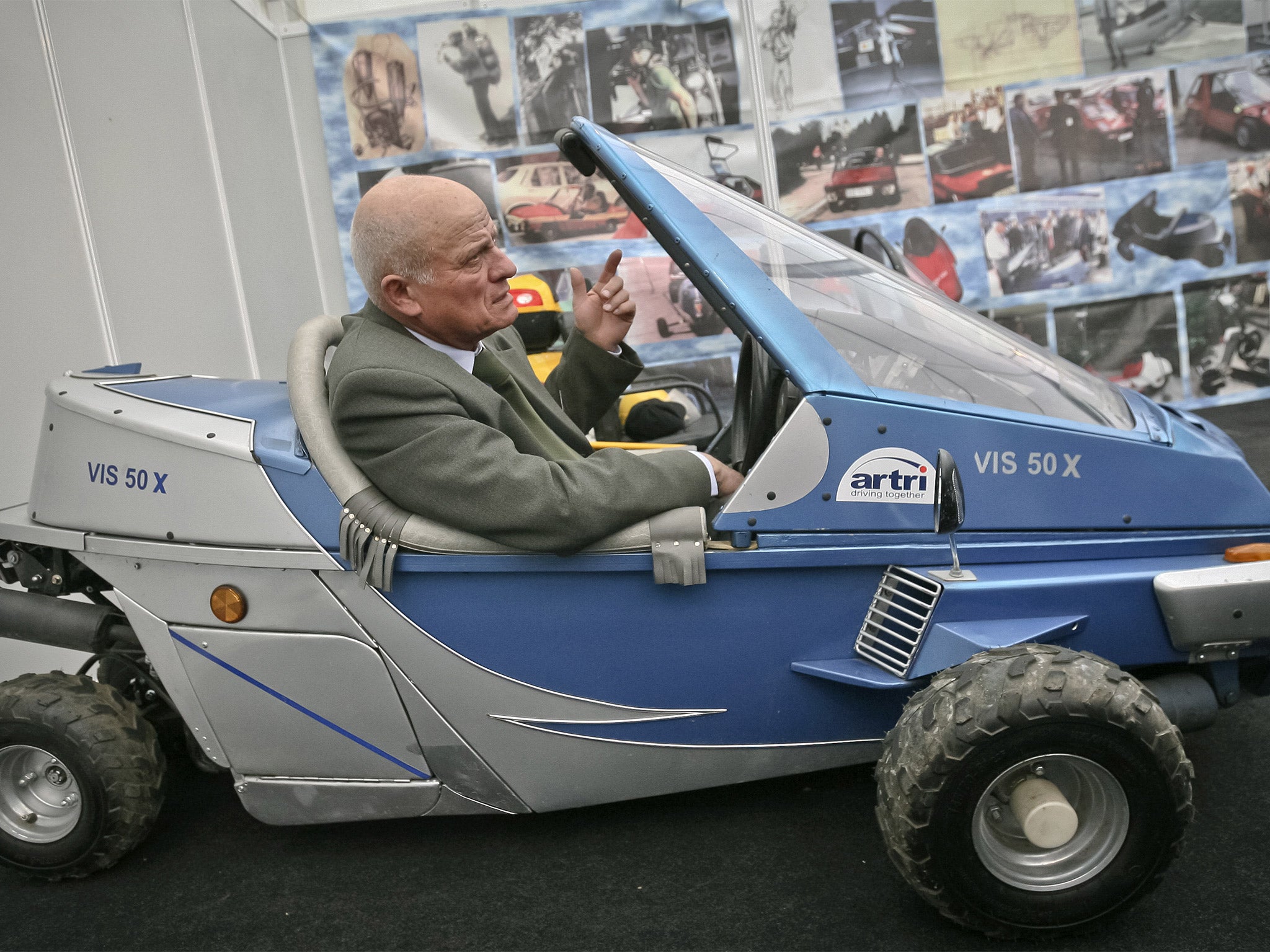Justin Capra: Engineer who invented the jetpack, as well as coming up with numerous prototypes for fuel-efficient vehicles
Of his more than 100 inventions, 72 were prototypes of cars with low fuel consumption, seven were aircrafts and 15 unconventional engines

Your support helps us to tell the story
From reproductive rights to climate change to Big Tech, The Independent is on the ground when the story is developing. Whether it's investigating the financials of Elon Musk's pro-Trump PAC or producing our latest documentary, 'The A Word', which shines a light on the American women fighting for reproductive rights, we know how important it is to parse out the facts from the messaging.
At such a critical moment in US history, we need reporters on the ground. Your donation allows us to keep sending journalists to speak to both sides of the story.
The Independent is trusted by Americans across the entire political spectrum. And unlike many other quality news outlets, we choose not to lock Americans out of our reporting and analysis with paywalls. We believe quality journalism should be available to everyone, paid for by those who can afford it.
Your support makes all the difference.Justin Capra was an inventor who claimed to have beaten the Americans to make the world's first jetpack and who went on to design and build dozens of vehicles. The modern-day car, he said, was "a disgrace". Of his more than 100 inventions, 72 were prototypes of cars with low fuel consumption, seven were aircrafts and 15 unconventional engines.
Propelled by poverty and curiosity, Capra began inventing gadgets in childhood. He joined the army, and in 1955 invented the Virgilius RocketCar, which was fitted with a jet engine and reached 180mph.
The following year he unveiled the "flying rucksack", a personal flying machine. A paratrooper tried it out but crashed. Capra was advised by the aviation pioneer Henri Coanda to change the fuel; he did so and came up with an improved version. The same paratrooper tried it again and this time it stayed in the air. But, under communism, citizens were not allowed to own flying machines and Capra was unable to patent his invention.
Undaunted, he sought help from the US Embassy in Bucharest, but as he left the building he was arrested by Securitate agents, who accused him of attempting to build a flying machine in order to flee Romania. During two weeks of interrogation he was beaten, and threatened with worse, and when he was released he was forbidden from working as engineer, forced instead to work as a sweeper and cleaner.
In 1962 an identical machine was produced in the US by Bell Aircraft and patented. "All that was different was the colour," Capra insisted. In 2002 the US officially recognised Capra as the inventor of the jetpack.
In 2011 he built a single-seater car that did 470 miles to the gallon, running on a mixture of petrol and water. He blamed "social, political, and economic reasons" for his belief that it would never be built on a mass scale.
Of cars, he said: "They are a disgrace. They weigh 1,000 kilograms and carry people who weigh 60 kilograms... Of one litre of fuel, 980 millilitres shifts the car and 20 millilitres is for us." He warned that because the number of cars exceeds roads being built, "instead of becoming a means of transporting people, cars will become a reason for blocking the traffic."
ALISON MUTLER
Justin Virgilius Capra, inventor: born Magureni, Romania 22 February 1933; died Ploiesti, Prahova, Romania 19 January 2015.
Join our commenting forum
Join thought-provoking conversations, follow other Independent readers and see their replies
Comments